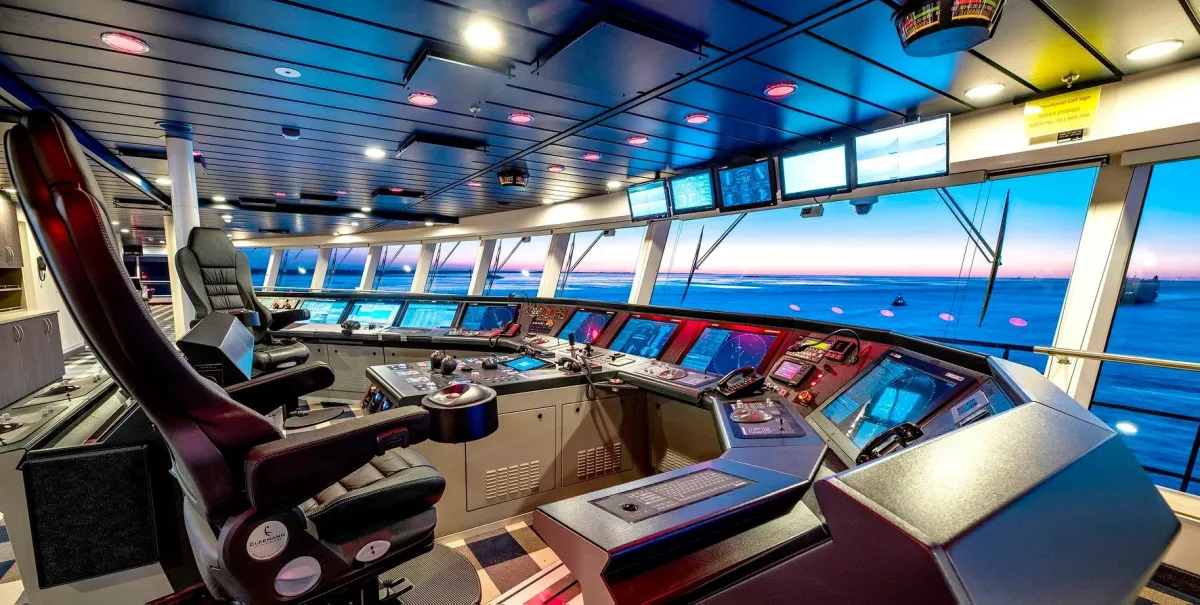
RFID Technology & The High Seas
Cruisin’ Into the New Year: Technological Advancements and Innovation
Picture it – the holiday season, 2023. Imagine that you have decided to forego hosting a holiday gathering at your home, nor are you going to travel from house to house to visit with family and friends while spreading holiday cheer and dropping off gifts. Santa already has that part covered anyway, right? This year is going to be different. This year, you have decided to spend your holidays having a bit of fun in the sun. You’re going on a cruise!
Now fast forward a bit. You are on the ship and things are working out fantastically well. The first cruise day is a Day at Sea which includes hours of sailing to your destination with live music and margari…*clears throat*… and juice, very good juice. Dinner that evening is absolutely amazing and to your surprise, the captain and co-captain come over to your table to dine with the guests. How awesome, right?! The captain tells you that he has been sailing ships for 29 years, and he has stories galore. Some of them are about navigating the waters and others about navigating life, but all of them are wonderful. When he and the co-captain finally leave the table after about an hour or so, you think “oh wow, what a treat?!” But then…it hits you. If the captain and co-captain were at the table, WHO’S SAILING THE SHIP?!?!
I know you have guessed the answer already. The autopilot (autosailor???) had taken over, but it really makes you think. As we embrace new and emerging technologies on land, what exactly do the tech trends look like on the high seas? Artificial intelligence, virtual reality, and augmented reality are just a few of the next-generation technologies at play.
Radio frequency identification (RFID) technology uses electromagnetic fields to track and store information. More and more cruise lines are employing some form of RFID technology, using near-field communication-enabled wristbands and medallions to communicate with digital access points and sensors on retrofitted ships. Cruiser-specific information is stored on microchips, allowing for onboard payments, ordering food and drinks, participation in ship games, unlocking your cabin door, and location tracking. In addition to helping you locate family and/or friends that are cruising with you, the location trackers also aid waiters in delivering food and drinks to the cruiser almost anywhere on the ship. There is no need to wait in line. Additionally, many cabins are now equipped with a “personal cruise assistant,” a voice-enabled artificial intelligence apparatus that answers questions pertaining to the ship and even provides suggestions on ship-related activities to try.
If you are someone who likes to know what is happening behind the scenes, you will be delighted to know that some ships are even including an X-Ray vision component to uncover the mystery of the ship’s architecture and design. This permits you to see the metal framework of the ship as well as the details of the more obscure spaces, access to which cruisers would otherwise be denied. As it relates to augmented reality, some typical cruise activities like trivia hour and scavenger hunts now include a digital component of interactivity in which cruisers can use their smart phones to find clues and uncover hidden treasures. Lastly, data analytics are shaping and even personalizing cruise experiences by creating tailored shopping, including offers and promotions, based on customer engagement as well as a personalization engine that allows crew members to anticipate and quickly respond to customer needs.
Like any other industry, as technologies in the cruise industry continue to advance, so do the threats associated with those technologies. The need for increased cyber security on vessels will likely lead to increased biometric solutions, similar to those we see in airports, and an enhanced focus on balancing the desire for convenience with the need for safety. Going forward, one might imagine a cruise to be a seamless, yet engaging and personalized voyage with just the right amount of encryption and multi-factor authentication mixed in. In other words, let’s hope for boatloads of fun with RFID technology and a smattering of…cruise control. 🙂